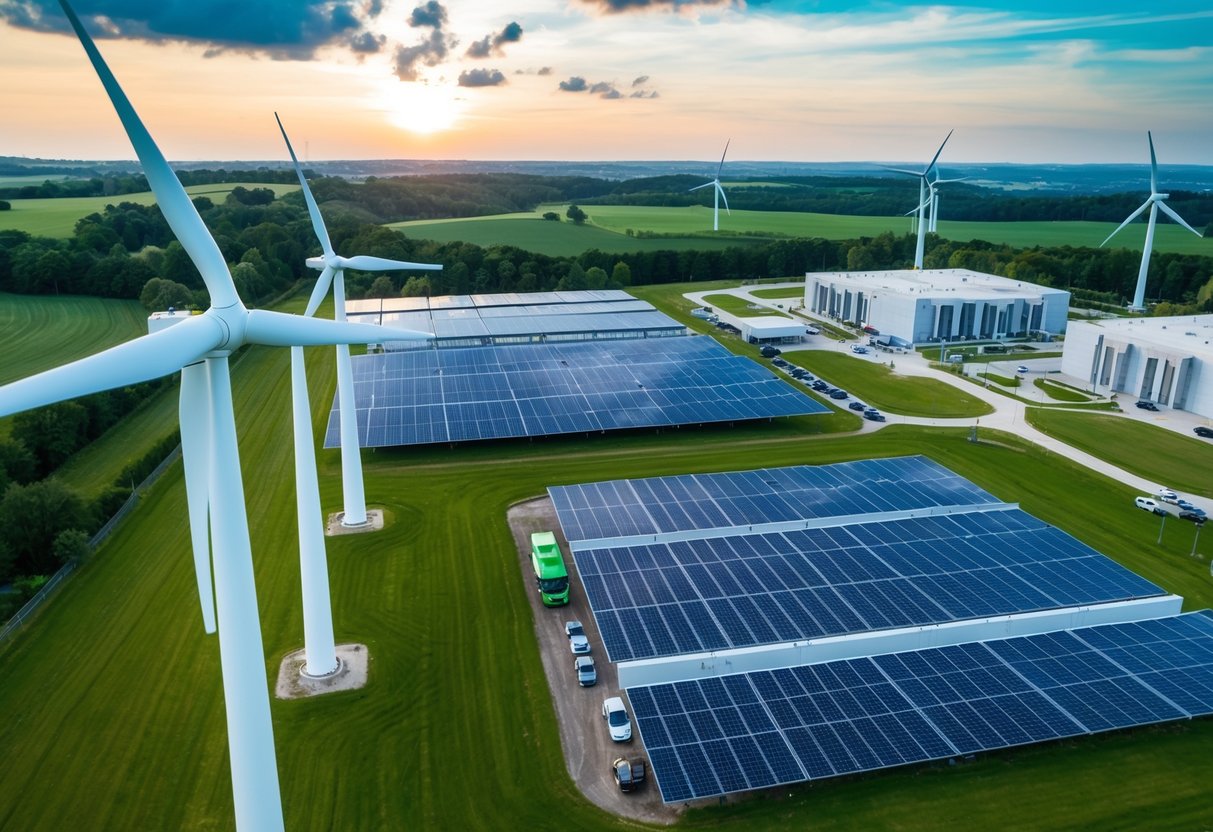
Emerging Trends and Future Opportunities
Exploring the evolving landscape of sustainable investing reveals significant shifts, including technological advancements, regulatory impacts, and a growing interest in themes like the transition to a net-zero economy. These developments provide substantial opportunities for investors seeking to future-proof their portfolios.
Innovation and the Global Economy
Technology-driven innovations are reshaping the global economy in sustainable ways. Breakthroughs in renewable energy, like solar and wind technologies, are changing how energy is produced and consumed. Companies investing in sustainable solutions are finding new markets and opportunities, driving job growth and fostering economic stability. Investors now consider these advancements crucial to diversifying and securing long-term returns, making it essential to keep an eye on technological progress in various sectors.
Corporate sustainability initiatives further blend innovation with economic growth. Businesses are reimagining supply chains, focusing on reducing waste and improving efficiency, contributing to a more sustainable global economy. Investors looking to align their portfolios with these trends benefit from enhanced resilience and reduced environmental risk, further underscoring the importance of innovation in sustainable investing.
Regulatory Changes and Their Impact
Regulatory changes across the globe are increasingly supporting sustainable practices. Governments are implementing policies that encourage environmentally friendly investments, compelling companies to adopt greener practices. This regulatory environment creates new challenges and opportunities for investors as they navigate evolving standards and requirements.
Regulatory frameworks, such as carbon pricing and emissions trading, are becoming critical elements of investment consideration. These measures influence market dynamics, affecting asset valuations and investment strategies. For sustainable investors, understanding regulatory impacts enables them to make informed decisions, aligning investments with global sustainability goals.
Thematic Investing and the Net-Zero Transition
Thematic investing, centered around the net-zero transition, is becoming a key strategy for sustainable investors. This approach involves targeting investments in sectors and companies that are integral to reducing carbon emissions. Key themes include renewable energy, energy efficiency, and green technology, all essential to achieving a net-zero future.
Investors embrace thematic strategies to capitalize on long-term growth prospects associated with the transition to a low-carbon economy. The focus on decarbonization aligns investments with global efforts to tackle climate change, offering the potential for robust financial returns while contributing to environmental sustainability. This makes thematic investing an attractive option for those looking to support and benefit from the shift toward a net-zero world.
Financial Instruments for Sustainable Investing
Investors have various financial instruments to choose from that align with sustainable investing principles. Key options include green bonds and exchange-traded funds, enabling both direct and diversified ESG-aligned investments.
Green Bonds and Sustainable Financing
Green bonds represent a crucial tool for funding projects with environmental benefits. Issuers, including governments and corporations, use the proceeds to finance initiatives such as renewable energy, energy efficiency, and pollution reduction. These bonds appeal to investors seeking to support climate-positive projects while aiming for financial returns.
Sustainable financing also encompasses social and sustainability bonds, targeting broader ESG goals. Investors should assess bond frameworks and third-party certifications to ensure alignment with sustainability standards. As sustainable finance continues to grow, green bonds are becoming an integral part of responsible investment portfolios.
Exchange-Traded Funds and ESG Integration
Exchange-traded funds (ETFs) offer another avenue for sustainable investing through diversified market exposure. ESG integration in ETFs involves incorporating environmental, social, and governance criteria into investment strategies to align with investor values.
These funds track indices designed to include companies with strong ESG performance, enabling investors to support responsible business practices. ESG-driven ETFs provide transparency and flexibility, allowing investors to manage risk and pursue positive impact. As the demand for sustainable options rises, many asset managers are expanding ESG ETF offerings to cater to varied investor preferences.